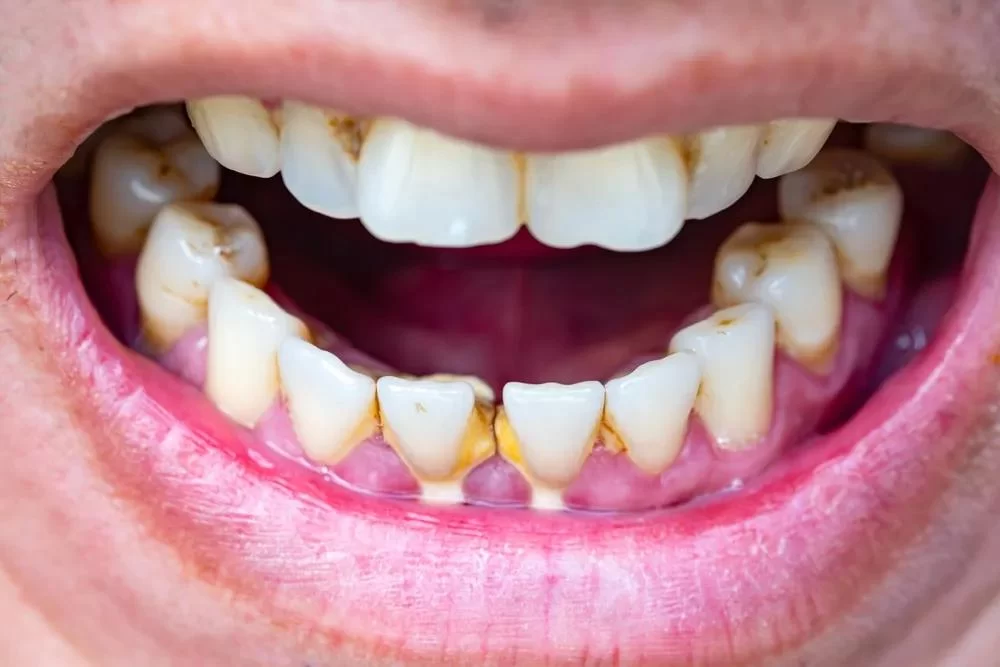
Understanding Poor Oral Hygiene and Its Signs
Poor oral hygiene refers to inadequate care of the mouth, teeth, and gums, leading to a range of dental and health problems. In everyday terms, it means not brushing or flossing regularly, skipping dental check-ups, and neglecting proper cleaning techniques. But how exactly does one describe poor oral hygiene? It often manifests through visible symptoms like plaque buildup, bad breath, discolored teeth, and swollen gums. These signs not only affect appearance but also indicate deeper health issues.
In the United States, dental care is a vital aspect of overall health, yet many people underestimate the impact of poor oral hygiene until problems become severe. Describing this condition accurately helps in early detection and encourages proactive care.
1. Common Physical Signs of Poor Oral Hygiene
When describing poor oral hygiene, specific physical symptoms stand out:
- Plaque and Tartar Buildup: A sticky, colorless film of bacteria that hardens into tartar, often visible as yellowish or brown deposits along the gum line.
- Bad Breath (Halitosis): Persistent unpleasant odor from the mouth caused by bacteria and food debris.
- Gum Inflammation and Bleeding: Red, swollen gums that bleed easily, signaling gingivitis or early gum disease.
- Tooth Decay and Cavities: Visible holes or discoloration on the tooth surface, often painful and a direct consequence of neglected cleaning.
- Dry Mouth and Coated Tongue: A sticky feeling or white coating on the tongue, which often accompanies poor hygiene habits.
2. Causes Behind Poor Oral Hygiene
Understanding what causes poor oral hygiene is key to addressing the problem effectively. Common contributing factors include:
- Inconsistent Brushing and Flossing: Missing daily brushing or failing to floss allows bacteria and plaque to accumulate.
- Poor Diet Choices: Frequent consumption of sugary and acidic foods increases the risk of tooth decay.
- Lack of Regular Dental Visits: Skipping professional cleanings and exams prevents early problem detection.
- Smoking and Tobacco Use: Tobacco damages gums, stains teeth, and worsens oral health.
- Health Conditions: Certain illnesses, medications, or dry mouth conditions can impair oral hygiene.
3. Effects and Risks of Neglecting Oral Hygiene
Poor oral hygiene extends beyond cosmetic issues. It can lead to serious health consequences including:
- Gum Disease: Progressing from gingivitis to periodontitis, causing gum recession and tooth loss.
- Tooth Loss: Severe decay and gum disease result in teeth becoming loose or falling out.
- Systemic Health Problems: Studies link oral bacteria to heart disease, diabetes complications, and respiratory infections.
- Social and Emotional Impact: Chronic bad breath and dental issues can affect self-esteem and social interactions.
4. How to Improve and Maintain Good Oral Hygiene
Improving oral hygiene is achievable through consistent habits and professional support. Key recommendations include:
- Brush Teeth Twice Daily: Use fluoride toothpaste and a soft-bristle brush to clean all tooth surfaces thoroughly.
- Floss Daily: Remove plaque and food particles from between teeth where brushes can’t reach.
- Limit Sugary Foods and Drinks: Reducing sugar intake lowers the risk of cavities.
- Visit the Dentist Regularly: Routine check-ups and cleanings catch problems early and keep teeth healthy.
- Stay Hydrated: Drinking water helps maintain saliva flow which protects teeth.
5. A Real-Life Story: Overcoming Poor Oral Hygiene
Jessica, a 32-year-old teacher from Ohio, struggled for years with persistent bad breath and bleeding gums. Initially embarrassed, she ignored the symptoms until a colleague encouraged her to see a dentist. After a thorough dental cleaning and adopting proper brushing and flossing routines, Jessica noticed a remarkable improvement within weeks. Her story highlights how recognizing and describing the symptoms of poor oral hygiene can lead to timely action and lasting oral health.
6. The Importance of Educating and Raising Awareness
Describing poor oral hygiene accurately is essential for educating people and promoting better habits. Health professionals emphasize the need for awareness campaigns, especially in communities where access to dental care is limited. Empowering individuals with knowledge about symptoms and prevention strategies can dramatically improve public oral health outcomes.
For those seeking personalized advice or treatment, Dentistry Toothtruth offers expert services and resources to support optimal dental care tailored to your needs.







 Smiles of Carpentersville3.0 (26 review)
Smiles of Carpentersville3.0 (26 review) Madison Oral Surgery & Dental Implants4.0 (661 review)
Madison Oral Surgery & Dental Implants4.0 (661 review) Matthews Dental Associates4.0 (18 review)
Matthews Dental Associates4.0 (18 review) Amazing Smiles Orthodontics5.0 (147 review)
Amazing Smiles Orthodontics5.0 (147 review) Legacy Dental Care Los Altos0.0 (0 review)
Legacy Dental Care Los Altos0.0 (0 review) St. Paul Oral Surgery - Mendota Heights4.0 (214 review)
St. Paul Oral Surgery - Mendota Heights4.0 (214 review) The Importance of Oral Health Education During Pregnancy for a Healthy Pregnancy
The Importance of Oral Health Education During Pregnancy for a Healthy Pregnancy Best Tips for Brushing Your Teeth Properly for Healthy Gums: Essential Techniques for Oral Health
Best Tips for Brushing Your Teeth Properly for Healthy Gums: Essential Techniques for Oral Health Why Skipping Dental Checkups Can Lead to Bigger Oral Health Problems
Why Skipping Dental Checkups Can Lead to Bigger Oral Health Problems Advantages of Porcelain Dental Restorations
Advantages of Porcelain Dental Restorations How Can Diabetes Cause Tooth and Gum Problems? Preventing and Managing Oral Health Issues
How Can Diabetes Cause Tooth and Gum Problems? Preventing and Managing Oral Health Issues Healthy Habits for Promoting Good Oral Health and Hygiene: Tips for a Healthy Smile
Healthy Habits for Promoting Good Oral Health and Hygiene: Tips for a Healthy Smile